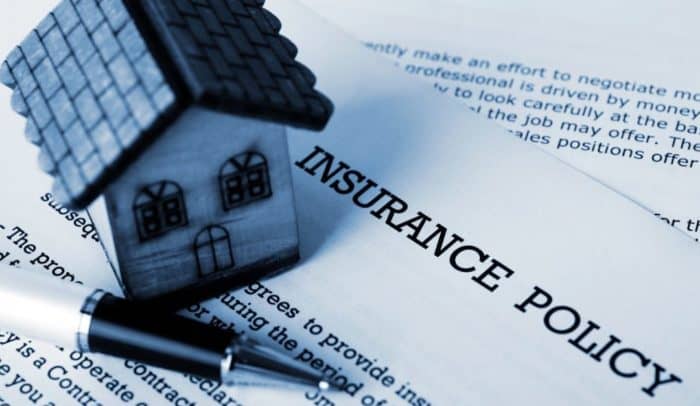4 Things They Don’t Warn You About When You Make an Insurance Claim

You buy home insurance and pay the premiums so that if anything happens, your family has the money to repair the damage and rebuild. You contracted for the right to make a claim on that coverage if a fire or flood damage your home, but the insurance claim process can be overwhelming.
If you are making a claim on your home insurance policy, you should be as organized and prepared as possible. While we’ve covered the claims process extensively on our blog and in our guide to fire insurance claims, there are 4 things about making a claim that isn’t often discussed, and you should know about them in advance.
#1 Examinations Under Oath
Insurance companies have a duty to ensure that each claim is legitimate, and they have a number of tools at their disposal to do so. An Examination Under Oath (EUO), or a sworn statement, are two tools that insurers use to discourage fraudulent claims, perform their due diligence, or in some cases, investigate ways that a claim can be reduced or denied.
It you’re making a statement under oath you have a legal obligation, to tell the truth, and for law-abiding policyholders already dealing with a major loss, telling the truth isn’t difficult, but it can feel like a lot of pressure.
It can be intimidating to receive a request for an EUO, but in most cases, insurance companies require an Examination Under Oath simply to perform their due diligence. It does not necessarily mean that you are in trouble or that your claim will be denied. Nevertheless, it is wise to seek the advice and assistance of an insurance claims lawyer if you receive an order for an examination.
The insurance company may be represented by a lawyer at the examination, which will likely take place in the presence of a court reporter who types out all of your answers. If you retain an insurance lawyer, they will prepare you for the examination and let you know what to expect, and they can be there to guide the process if need be.
#2 Document Everything & Create a Budget
The one thing you should be wary of before you begin any work is documentation. Be sure to photograph, video, and take notes on any repair work done or items removed before an insurance adjuster from the company arrives. The insurance adjuster will assess the damage for the insurance company, but you should keep your own record of the full extent of the damage in the event the existence or severity of any damage becomes contentious later.
Documentation will also be an important factor in determining liability. If the insurance adjuster has to begin an investigation into liability, the process will be long and involved. The adjuster may need to hire a private investigator to learn more than what’s provided by the fire department’s report.
Liability for the loss does not necessarily mean that the homeowner is responsible for remedying an accident. Insurance coverage should still apply to fires that began because of faulty wiring or by accident. Investigations focus on whether a fire was deliberately set (arson), or if there was a third party whose work or product caused the fire.
Should the insurance adjuster require an investigation, it could be a long time until your insurance claim is completed and money is released to begin repairs on your home. Recovery periods can already be long and an investigation will only extend them. This is a prime example of one of those cases where it is reasonable for the homeowner to start the work themselves, and go after reimbursement once the investigation is closed. If the scene is cleared, sitting and waiting for the insurer’s investigation to wrap up may result in damage that the insurer refuses to cover.
Keep your budget in mind, especially if an investigation is opened. Your everyday costs will be higher if you do not have the use of your home, and while some of those expenses may be covered under Additional Living Expenses, you may not be able to receive an advance until the investigation has concluded. You will have to create a strict budget to get by and may even have to consider securing a loan. If you have emergency savings, now is the time to start using them.
#3 Start Cleaning and Repair Work Quickly if the Insurer Isn’t
Before you start, remember: most insurance companies will take care of things for you. The homeowner would only have to do the work themselves in a minority of situations. If you start to see warning signs, you can get in touch with your adjuster and let them know what you plan to do, which may prompt them to act more quickly on their own.
If the insurance company is dragging their feet and you can start the work on repairs or cleanup yourself: do so (and document everything you do). Once the fire department has cleared your home for re-entry, assess the extent of the damage and communicate with the adjuster assigned to your claim to figure out how quickly things will be moving. In many cases, sitting and waiting can cause further damage to your home from the elements or even looters. Your insurer can deny coverage for those subsequent damages if it would have been reasonable for you to step in and take steps to protect the property.
Often, insurance companies want to control the cleaning or repair process, and they should be very clear about this from the earliest stages. If they appear to be taking a back seat or letting you make the plans, they may also expect you to do some of the work yourself. Ask the adjuster early on: are you going to secure the home? Are you going to arrange for cleaning before things get worse? Are you going to get contractors in quickly to begin weatherproofing the home? Once you know who is controlling the process, you’ll know whether you need to step in and start taking the steps yourself.
For example, smoke damage gets worse with time, and acting quickly may mean more items are saved then if you wait and let them sit. If the Insurer has indicated that they will clean the content, ask when they plan on doing so. If they don’t act quickly, you may want to consider cleaning smoke-damaged goods on your own:
- Use trisodium phosphate cleaner to remove charring or light soot from walls, floors, and furniture;
- Repair bubbling and blistering in the walls; and
- Remove smoke odours.
Not all items will be cleanable at home, and it might be a good idea to consult with a professional about whether it’s worthwhile to even attempt to salvage certain items. Some items are more affordable and reasonable to replace as opposed to incurring the cost to try and clean them.
Whatever steps you take document them thoroughly. If you start the cleaning process because you’re trying to protect certain items, your coverage should reimburse you for the costs of doing so, but the adjuster will need to verify the costs. If you try to clean something and it does not work, the Insurer will need to know what the original damage was, and verify that your cleaning attempt didn’t cause damage that would not have otherwise occurred. The more thorough your documentation, the better you’ll be able to address these concerns.
#4 Limits on Your Policy
Even once your insurance company approves your claim, your coverage is limited to the terms and limits of your policy. Your insurance policy will outline limits on different areas of coverage such as Contents, Additional Living Expenses, and Structure/Dwelling Costs. When you are making repairs or replacing your belongings, keep your policy limits in mind. Any costs that go above and beyond your policy limits or terms will ultimately fall to you.
For more tips about making an insurance claim, check out our article on what not to do after a house fire, such as removing items from the site without informing the insurer, stopping work being done by the insurer, and throwing out receipts for Additional Living Expenses.
Getting through the insurance claim process can be difficult, and if you cannot live in your home while you go through it, there will be even more stress. Create a strict budget to get by, do what you can to repair and secure your home, and document everything you do.


